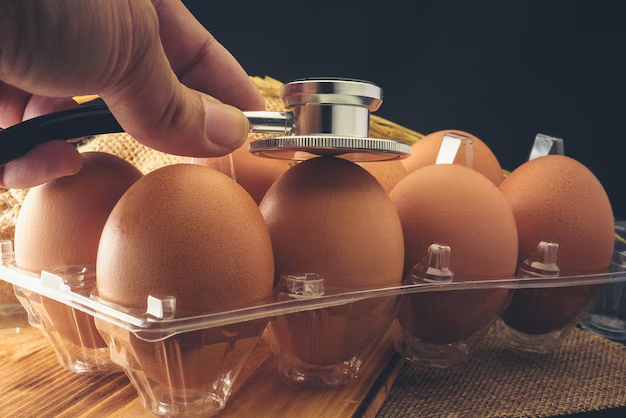How Long Can a Dozen Eggs Stay Fresh in Your Refrigerator: A Comprehensive Guide
Eggs are a staple in many households, offering a versatile and nutritious addition to meals. But how long does a dozen eggs last in the refrigerator, and how can you ensure they stay fresh? In this article, we'll delve into the lifespan of refrigerated eggs, offer tips on how to keep them fresh, and explore various related topics to empower you with all the information you need about egg storage and shelf life.
🥚 Understanding Egg Freshness
Eggs don't come with an indefinite shelf life, and understanding how their freshness is determined can help extend their usability. Generally, the freshness of an egg is influenced by several factors, including how they are stored, the conditions within your refrigerator, and whether they've been cooked or left raw.
H2: Factors Affecting Egg Freshness
- Storage Conditions: Eggs should be stored at consistent temperatures. Fluctuations can lead to spoilage, making a refrigerator the best storage environment.
- Egg Type: Different types of eggs (e.g., organic, free-range) may have slight differences in longevity due to variations in how they are processed and stored before sale.
- Packaging Date: Paying attention to the packaging or expiration date can give insight into how long the eggs have been on the shelf.
H3: Egg Shelf Life in the Refrigerator
On average, fresh eggs can last for about 3 to 5 weeks in the fridge. However, their optimal quality is usually maintained within the first two weeks.
🧊 Best Practices for Storing Eggs in the Refrigerator
To maximize the shelf life of your eggs, certain practices can be followed to ensure they remain fresh and safe to consume.
H2: Proper Storage Techniques
- Keep Eggs in Their Carton: The carton protects the eggs from absorbing strong odors and flavors of other foods in the refrigerator and helps protect them from moisture loss.
- Refrigerator Section: Store eggs in the main part of the refrigerator rather than the door. The door experiences more temperature fluctuations, which can accelerate spoilage.
- Temperature Control: Maintain a consistent temperature. Ideal temperatures for egg storage are around 35°F to 40°F (1.6°C to 4.4°C).
🤓 Quick Tip: Always observe the "best by" date, but remember that eggs can sometimes remain good for days after the listed date if stored correctly.
🥚 Identifying Freshness: Is Your Egg Still Good?
Knowing how to test the freshness of an egg is as important as knowing how to store it.
H2: Simple Tests for Egg Freshness
The Water Test: Gently place your egg in a bowl of water:
- Fresh Egg: Sinks to the bottom and lays flat on one side.
- Older Egg: Starts to stand upright at the bottom.
- Spoiled Egg: Floats to the top.
Sniff Test: A fresh egg has no noticeable smell. If an egg smells sulfuric or off, it may be time to discard it.
Crack and Observe: Crack the egg on a flat surface. Fresh eggs have thick, firm albumen (white), while older eggs have thinner whites and a flattened yolk.
🍳 Cooking with Eggs: Impact on Shelf Life
Once cooked, eggs have a different shelf life. Understanding the differences ensures safety and enhances meal planning.
H2: Shelf Life for Cooked Eggs
Cooked eggs, such as hard-boiled, have a shorter lifespan than raw ones but are equally versatile in meal prep.
- Hard-Boiled Eggs: Can be stored in the fridge for about 1 week.
- Scrambled or Other Cooked Eggs: It’s best to eat them within 3–4 days for optimal freshness.
H3: Storing Cooked Eggs
- Use Airtight Containers: This prevents the eggs from drying out and ensures they don’t absorb other flavors in the fridge.
- Prompt Refrigeration: Cooked eggs should be refrigerated within two hours of cooking to minimize the risk of bacterial growth.
🥄 Practical Insight: Reserve cooked eggs for quick meals throughout the week or include them in salads for added protein.
🌿 Exploring Alternatives: Extending Egg Shelf Life
For those seeking alternatives or wanting to ensure longer storage, there are several options to explore.
H2: Preserving Eggs for Extended Storage
Freezing Eggs: Eggs can be frozen for longer shelf life. However, they must be prepped before freezing:
- Whole Eggs: Beat until blended, then freeze.
- Egg Whites: Can be frozen directly.
- Egg Yolks: A pinch of salt or sugar should be added to keep them from becoming too gelatinous.
Pickling or Salting Eggs: These traditional methods can also extend the lifespan of eggs for those interested in preservation techniques.
❄️ Important Note: Always thaw frozen eggs in the refrigerator before use and consume promptly.
Your Visual Guide to Egg Storage
📝 Here's a quick reference guide to keep your eggs fresh and delicious:
| Action | Method | Duration |
|---|---|---|
| Store Fresh Eggs | In the original carton, in the fridge | 3–5 weeks |
| Test Freshness | Water test, sniff, or crack test | Immediate results |
| Refrigerate Cooked Eggs | Use airtight containers | Hard-boiled: 1 week; Other cooked: 3–4 days |
| Freeze Eggs | Beat and freeze or separate whites/yolks | Up to 1 year |
💡 Highlight: Use the water bowl test for a quick and reliable check on freshness, especially if the "best by" date has passed.
Final Thoughts on Egg Storage
Eggs are a resilient and versatile food, but like all food products, they require proper care and handling to ensure safety and longevity. By following best practices for storage and remaining vigilant about their condition, you can enjoy eggs at their freshest while minimizing waste. Whether you choose to freeze, cook, or keep them raw, understanding how long a dozen eggs lasts in your refrigerator adds exceptional value to your daily culinary life.
Remember, keeping eggs fresh isn’t just about storage but also about staying informed and adaptive to best practices in food preservation. 🥚

